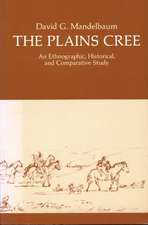Erich Auerbach and the Crisis of German Philology: The Humanist Tradition in Peril
Autor Avihu Zakaien Limba Engleză Hardback – 9 sep 2016
| Toate formatele și edițiile | Preț | Express |
|---|---|---|
| Paperback (1) | 693.71 lei 6-8 săpt. | |
| Springer International Publishing – 22 apr 2018 | 693.71 lei 6-8 săpt. | |
| Hardback (1) | 699.93 lei 6-8 săpt. | |
| Springer International Publishing – 9 sep 2016 | 699.93 lei 6-8 săpt. |
Preț: 699.93 lei
Preț vechi: 823.44 lei
-15% Nou
Puncte Express: 1050
Preț estimativ în valută:
133.93€ • 140.21$ • 110.82£
133.93€ • 140.21$ • 110.82£
Carte tipărită la comandă
Livrare economică 05-19 aprilie
Preluare comenzi: 021 569.72.76
Specificații
ISBN-13: 9783319409573
ISBN-10: 3319409573
Pagini: 210
Ilustrații: XIII, 218 p.
Dimensiuni: 155 x 235 x 14 mm
Greutate: 0.5 kg
Ediția:1st ed. 2017
Editura: Springer International Publishing
Colecția Springer
Locul publicării:Cham, Switzerland
ISBN-10: 3319409573
Pagini: 210
Ilustrații: XIII, 218 p.
Dimensiuni: 155 x 235 x 14 mm
Greutate: 0.5 kg
Ediția:1st ed. 2017
Editura: Springer International Publishing
Colecția Springer
Locul publicării:Cham, Switzerland
Cuprins
Introduction.- Erich Auerbach: Life, Times, and Works.- Dante and the “Discovery of European Representation of Man”.- The Crisis of German Philology: Aryan Philology and the Elimination of the Old Testament.- Two Responses to the German Crisis of Philology: Ernst Robert Curtius and Erich Auerbach.- Exile and Interpretation: The Struggle against Aryan Philology and Nazi Barbarism.- Mimesis – An Apologia for Western Judaeo-Christian Humanist Tradition in an Age of Peril, Tyranny, and Barbarism.- Epilogue: Exile, Interpretation, and Alienation.- Appendix 1: Constructing and Representing Reality: Hegel and the Making of Mimesis.- Appendix 2: Exile and Criticism: Edward Said’s Interpretation of Erich Auerbach.- Bibliography.- Author Index.- Subject Index.
Notă biografică
Avihu Zakai is Professor of History at the Hebrew University of Jerusalem. He is the author of twelve books, among them Exile and Kingdom: History and Apocalypse in the Puritan Migration to America (Cambridge: Cambridge University Press, 1992); Jonathan Edwards’s Philosophy of History: The Re-Enchantment of the World in the Age of Enlightenment (Princeton: Princeton University Press, 2003, in addition to numerous articles and presentations for scholarly and general audiences.
Textul de pe ultima copertă
This book analyzes and contextualizes Auerbach ’s life and mind in the wide ideological, philological, and historical context of his time, especially the rise of Aryan philology and its eventual triumph with the Nazi Revolution or the Hitler Revolution in Germany of 1933. It deals specifically with his struggle against the premises of Aryan philology, based on völkisch mysticism and Nazi historiography, which eliminated the Old Testament from German Kultur and Volksgeist in particular, and Western culture and civilization in general. It examines in detail his apologia for, or defense and justification of, Western Judaeo-Christian humanist tradition at its gravest existential moment. It discusses Auerbach’s ultimate goal, which was to counter the overt racist tendencies and völkish ideology in Germany, or the belief in the Community of Blood and Fate of the German people, which sharply distinguished between Kultur and civilization and glorified völkisch nationalism over European civilization. The volume includes an analysis of the entire twenty chapters of Auerbach’s most celebrated book: Mimesis: The Representation of Reality in Western Literature, 1946.
Caracteristici
Provides a comprehensive intellectual biography of Erich Auerbach Is the first and only study that fully explains the overarching plan, content and form, of Mimesis as a whole Will appeal to scholars in a wide range of disciplines and sub-disciplines, including philology, history, philosophy, and politics







